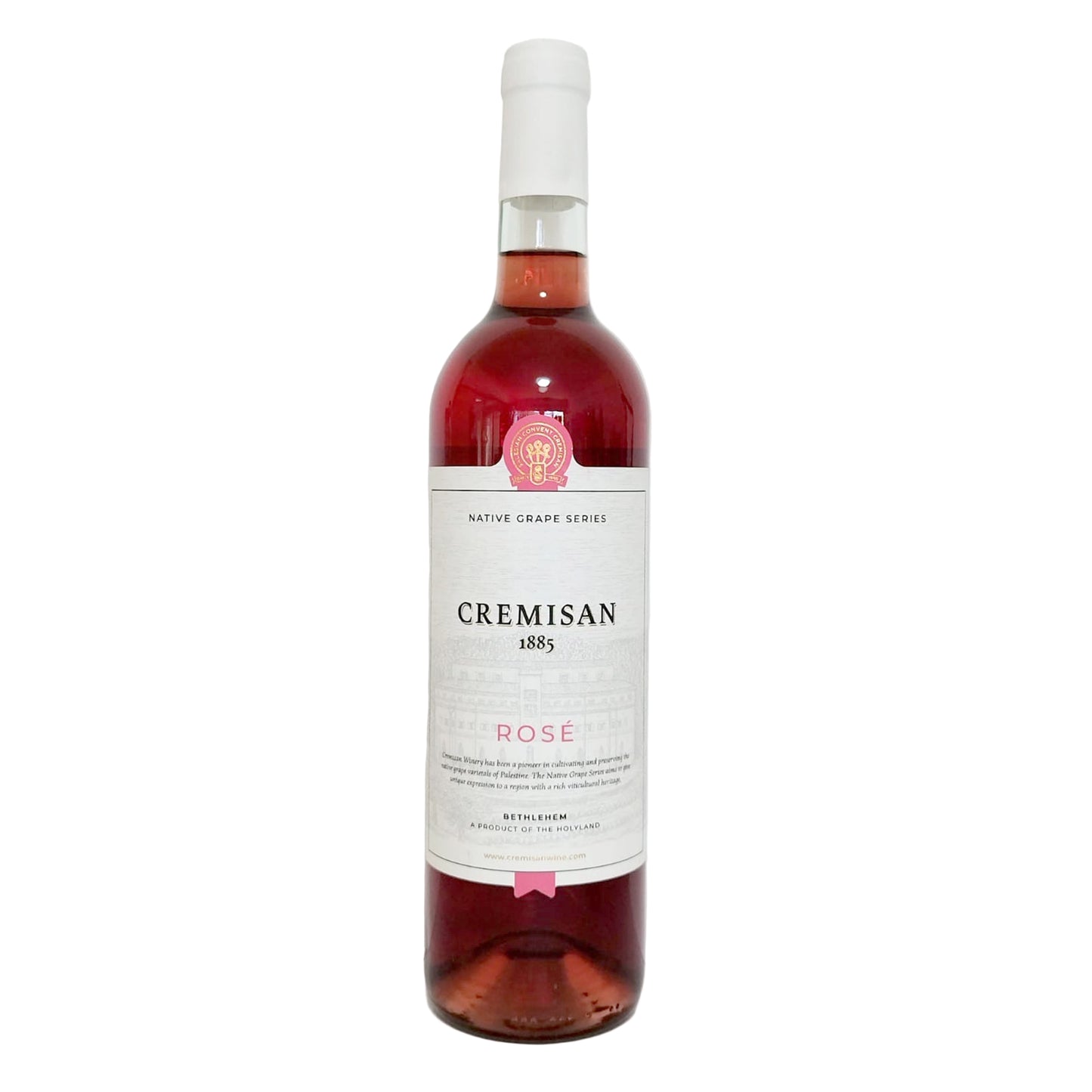Cremisan Baladi Rosé, Bethlehem 2022 (750 ml)
Cremisan Baladi Rosé, Bethlehem 2022 (750 ml)
Couldn't load pickup availability
Rose’ Baladi wine is obtained from an indigenous Palestinian grape called Baladi Aswad (black), cultivated mainly in Cremisan valley and Hebron.
Variety Baladi grape, Characterized by elliptic black berries.
Harvest
The grapes ripen in the first of September. They are handpicked in small boxes, during the first hours of the day or at night to preserve the varietal aroma.
Alcoholic Fermentation
The destemmed grapes are pressed right away and then fermented like white wines without the skin and seeds using selected yeasts at a controlled temperature, thus obtaining a wine with light color and intense aroma.
Bottling Preparations
The wine is then cooled down to -4 degrees Celsius for 10 days and then filtered twice before bottling.
Organoleptic Characteristics
Fresh and fruity with aromas of tropical fruit. This wine has generous summer blossom, peach and fresh flowers with a delicate body and lively acidity, that makes it perfect for sipping on a warm evening.
Food Pairing
Goes well with pasta, medium soft cheeses, baked chicken and sushi or to be enjoyed alone.
Best Served between 8–10 degrees Celsius.
Annual Production Limited Edition only 5,000 Bottles were produced.
The Cremisan monastery and winery was founded in 1885 by Fr. Antonio Belloni an Italian Salesian Monk. He opened the wine operation in an attempt to create a revenue source for the monastery’s orphanage.
Cremisan is located on the northern slope of Mount El Ras just outside the city of Bethlehem and only 12k away from Jerusalem. The name Cremisan comes from the Arabic “Kerem Zan” meaning the Vineyard of Zan grapes, an indigenous Palestinian varietal.
Cremisan was the first winery in the region to use indigenous Palestinian grapes, sparking both regional and international interest in Palestinian grapes. Cremisan’s interest in the grapes stemmed from research conducted by now Head Winemaker, Fadi Batarseh. For his university disseration, Fadi studied 64 different grape samples from around Palestine and concluded that Palestine is home to 21 unique genomes. Fadi and the Cremisan team picked the most promising four (Dabouki, Baladi, Hamdani, Jandali) to utilize commercially.
Place: Cremisan Valley, Bethlehem, Palestine (800m)
Grapes: 100% Baladai Aswad (black), an indigenous Palestinian varietal characterized by elliptic black berries


